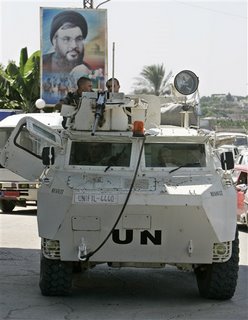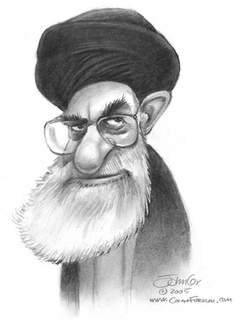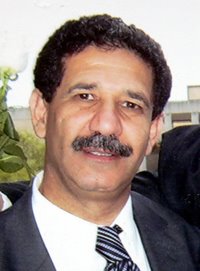 This is how the UN's humanitarian Chief, Jan Egelund, describes Israel's incomprehensible use of cluster bombs during the 72 hours leading up to the August 14 ceasefire in Lebanon. In fact, around 90 percent of the overall number of cluster bombs used by Israel during the 34-day war were dropped during those last three days. So far, the UN has identified 359 separate cluster bomb strikes in Lebanon, with as many as 100,000 unexploded bomblets. As a result, there have been 59 confirmed casualties—including 13 deaths—caused by the explosives since the end of hostilities.
This is how the UN's humanitarian Chief, Jan Egelund, describes Israel's incomprehensible use of cluster bombs during the 72 hours leading up to the August 14 ceasefire in Lebanon. In fact, around 90 percent of the overall number of cluster bombs used by Israel during the 34-day war were dropped during those last three days. So far, the UN has identified 359 separate cluster bomb strikes in Lebanon, with as many as 100,000 unexploded bomblets. As a result, there have been 59 confirmed casualties—including 13 deaths—caused by the explosives since the end of hostilities.According to international humanitarian law (IHL), cluster bombs—considered illegal by the Ottawa Process to ban land mines and other tied campaigns—should only be used against clearly-defined military targets and certainly not in civilian areas, which is where Israel dropped a great share of them. Cluster bombs belong to a category known as "explosive remnants of war" or "unexploded ordnance (UXO)," and as with land mines, a military that uses them in combat should provide a concise map of the areas where they were used, something Israel hasn't done to date. The problem with cluster bombs lies mostly in the failure rate; in other words, a percentage of the bomblets dropped don't explode on impact. As a result, civilians returning to their homes and children attracted by the objects—not to mention humanitarian workers rebuilding the country—are at great risk (in Afghanistan, UXO were often mistaken for yellow food packages). This is like having 100,000 invisible land mines in and around urban areas. Consequently, the already daunting task of rebuilding Lebanon will now require an element of de-mining as well.
What is difficult to comprehend is the reason why Israel felt the need to use these indiscriminate means against Lebanon—and to intensify their use—when it had already become clear that the hostilities would cease. Other than endanger the lives of civilians and make reconstruction more onerous, there is very little military advantage to having done so. The only explanation, therefore, is that the willful use of an illegal weapon was part of Israel’s plan of collective punishment for Lebanon, something that ties in well with the widespread bombing of civilian infrastructure and the embargo, which, despite please from UN Secretary General Kofi Annan, endures to this day.
The countries that provide Israel with cluster bombs—a list which includes but is not limited to the United States—should pressure Jerusalem to account for its indiscriminate use of these weapons and refrain from selling them to the Jewish state (or any state, for that matter). Hezbollah was often (and justly so) criticized by Israel and the international community for firing rockets indiscriminately into northern Israel. Jerusalem's use of cluster bombs is, haplessly, as indiscriminate, in that the unexploded bomblets linger on and can maim and kill months later without the benefit of targeting.














